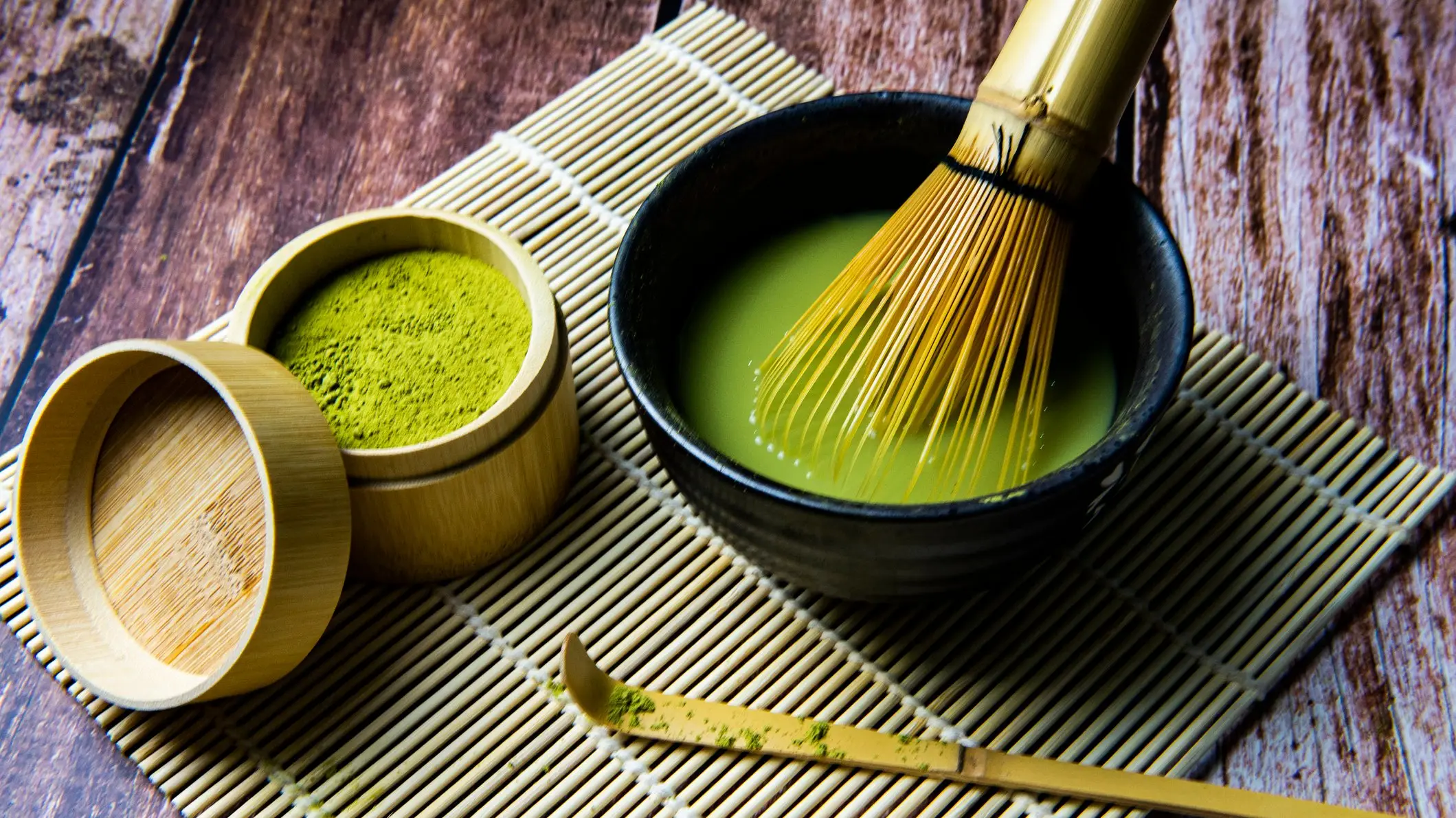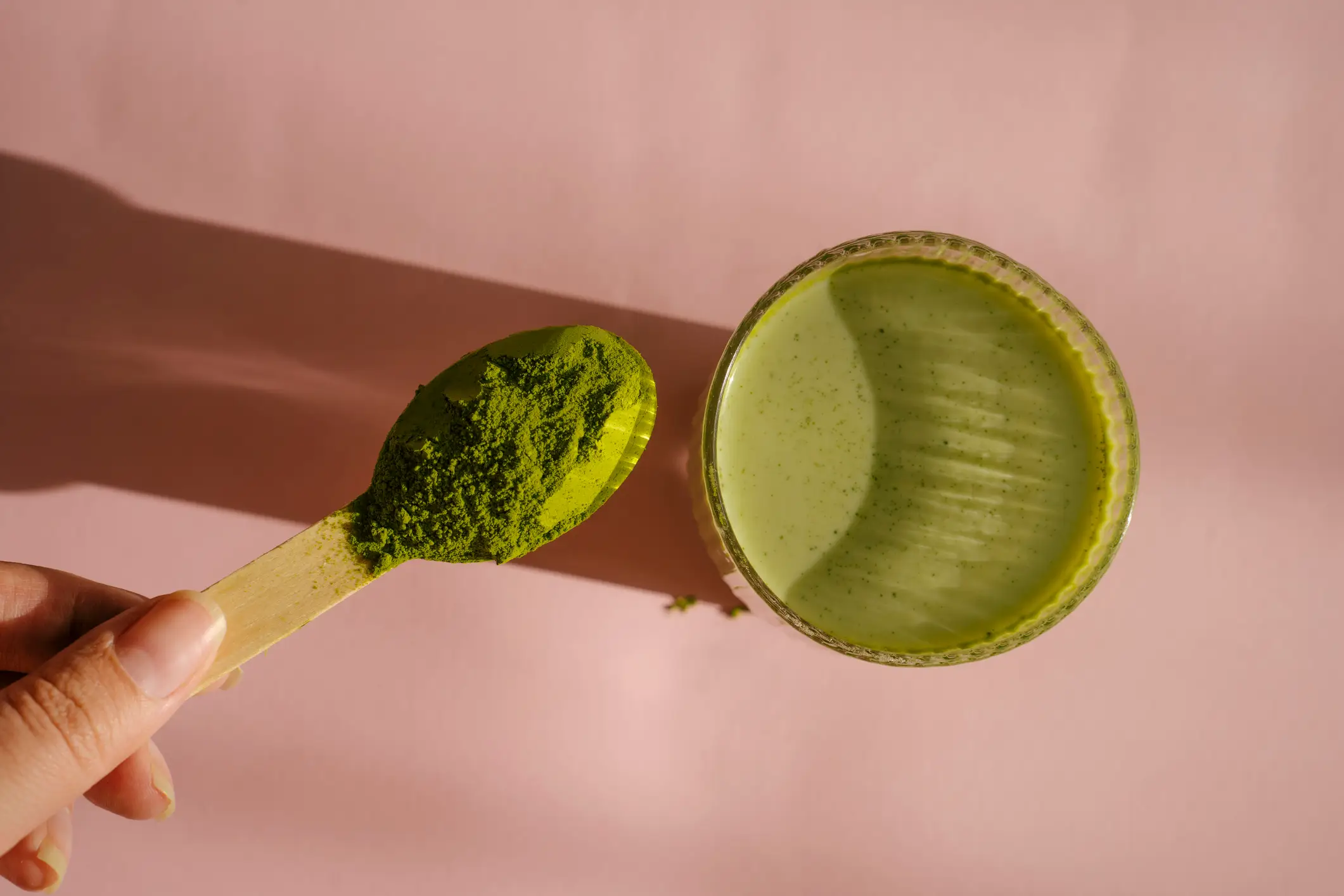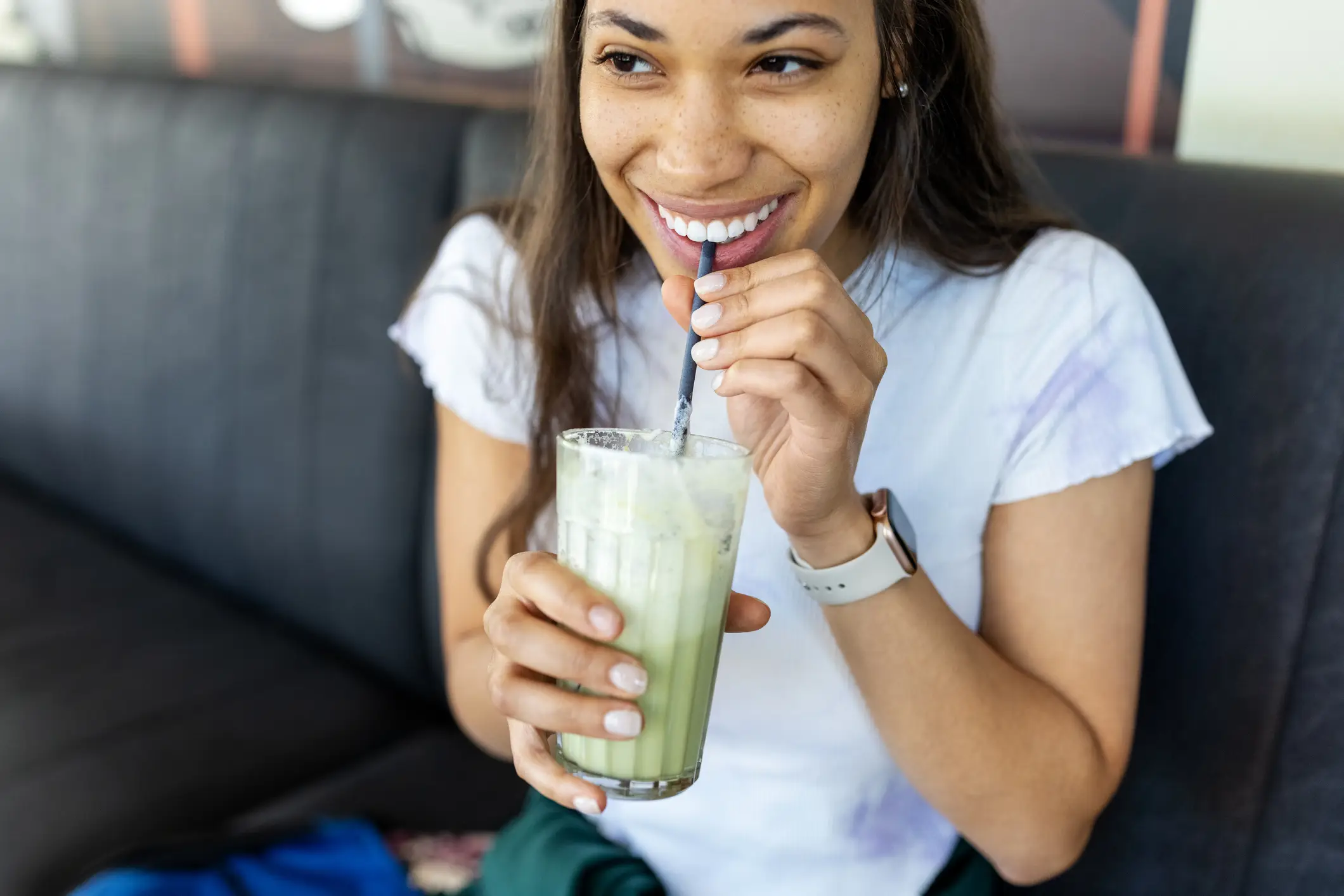
Matcha tea, a tea of Chinese and Japanese origin made with the ground-up tea leaves from shade-grown trees, has had a pretty major surge in popularity here in the UK and further afield.
A 2024 report found that the global matcha market is booming across tea and other matcha-based treats, and it’s been particularly popular among Gen Z.
Known for its subtle flavours and foamy texture, the tea’s become a popular coffee alternative and a go-to beverage for people in need of light refreshment.
However, it turns out that drinking it regularly could have some health consequences. Before you spit yours out, let’s get into the details.
Advert

Speaking to Vogue, nutritionist Farzanah Nasser explained: “Matcha is made from the green tea plant, Camellia sinensis, and is ground into a powder.
“These leaves are grown in the shade, which causes the plant to produce more chlorophyll, giving it that deep green color. This helps the plant to develop more nutrients and a stronger flavour profile.”
She added that the tea is ‘full of polyphenols, which are plant chemicals that contain anti-inflammatory properties, and help to increase good microbes, such as Bifidobacterium, in the gut’.
So far, so healthy. One of the polyphenols found in matcha is epigallocatechin gallate which has been shown to have a soothing effect on the nervous system. This explains why matcha has a calming effect despite its caffeine content.
“Drinking matcha can help to improve your mood and cognition, as well as reduce bad cholesterol and support liver detoxification,” added Nasser.
So, what’s the problem?
First, let’s look at the relative potency of the stuff. Nasser said a cup of matcha is the equivalent of around three cups of regular green tea.
The issue health-wise has a lot to do with this concentration. It turns out that the tannins present in matcha, which are of course also found in other teas, wine, and various fruits and vegetables, can have profound effect on your iron levels, especially compared with other, less-potent teas.
Tannins are a bitter-tasting polyphenol that plants use to ward off pests and diseases, and they can also bind with various proteins.
This is where the problem kicks in: the tannins in matcha can bind with non-heme iron.
“Matcha contains tannins that bond to non-heme iron, which is the form of iron found in plants, and can in turn block your body’s ability to absorb the mineral,” Nasser told Vogue.
“Matcha also contains catechins, which are powerful antioxidants and can interfere with your iron intake.”
If you’re anaemic, have previously been diagnosed with anaemia, or otherwise suffer from anaemia-like symptoms, it might be a good idea to pare back on the matcha.

However, there’s a workaround.
“No, [matcha fans] do not need to avoid matcha altogether,” explains Nasser. “Instead, they should include vitamin C-rich foods with their meals to improve iron absorption from non-heme foods, and can include matcha between meals, away from iron-rich plant-based meals.”
Even if you follow this advice, it’s best to drink the thick green tea in moderation.
“Matcha contains caffeine, and too much of this can impact your quality of sleep and even cause anxiety,” said Nasser.
